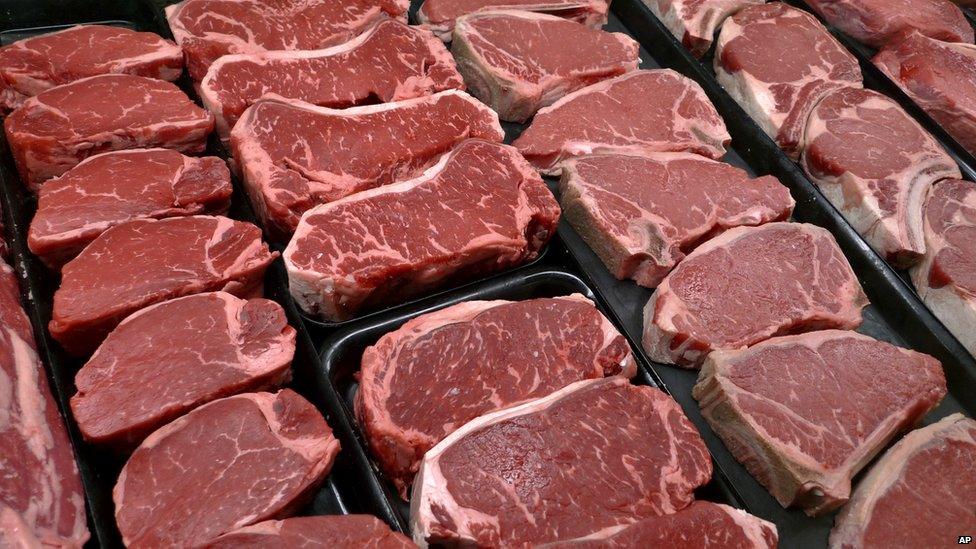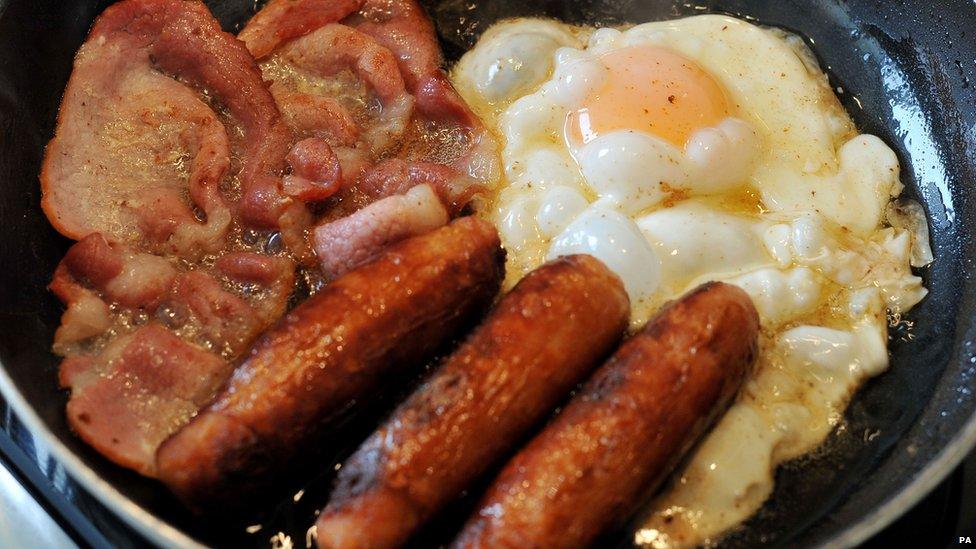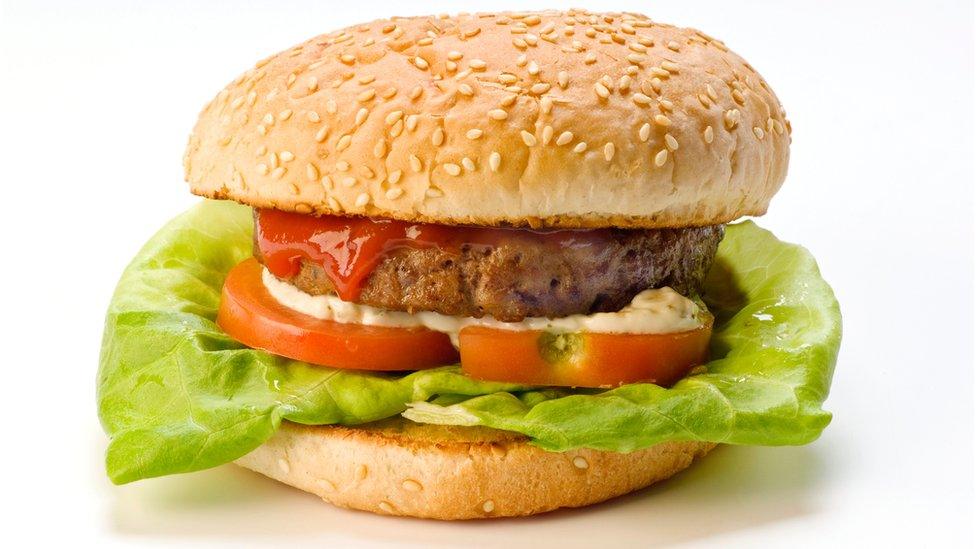WHO meat report: UK reaction to cancer link
- Published

A WHO report says red and processed meat increases the risk of getting cancer
UK scientists and meat industry representatives have been debating what the World Health Organization report linking meat and meat products to cancer will mean.
The WHO says processed meats such as bacon, sausages and ham increase the risk of getting cancer.

Dr Ian Johnson, from the Institute of Food Research, a publicly funded UK research institute that focuses on the science of food and health
He reacted cautiously to the WHO's report, saying: "It is important to emphasise that this classification reflects the strength of the evidence for an effect, not the actual size of the risk.
"Meat consumption is probably one of many factors contributing to the high rates of bowel cancer seen in America, Western Europe and Australia, but the mechanism is poorly understood, and the effect is much smaller than, for example, that of cigarette smoking on the risk of lung cancer.
"It is also worth noting that there is little or no evidence that vegetarians in the UK have a lower risk of bowel cancer than meat-eaters."

Maureen Strong, of the Agriculture and Horticulture Development Board, which is funded by farmers and growers to supply the food industry with information
She said the WHO's report did not suggest eating red and processed meats "as part of a balanced diet" caused cancer.
"No single food causes cancer. [The WHO's International Agency for Research on Cancer] itself has said that the risk from processed meat remains small," she said.
Ms Strong added that the average daily consumption of processed meat was 17 grams, which meant that on average people would need to eat "three times their current levels to increase their risk" of developing cancer.

Experts say the occasional fry-up will not do any harm
Dr Louis Levy, of government health organisation Public Health England
He said findings in the report were "broadly in line with current government advice", which is based on the possible link between consuming red and processed meat and colorectal cancer.
"On average, we should be eating no more than 70g a day. This advice recognises the fact that red meat is also a good source of nutrients, including iron, zinc and vitamin B12."

Professor Tim Key, from Cancer Research UK
He said there was "substantial evidence" for a link between meat-eating and bowel cancer.
However, "Eating a bacon bap every once in a while isn't going to do much harm - having a healthy diet is all about moderation," he said.
"You could try having fish for your dinner rather than sausages, or choosing to have a bean salad for lunch over a BLT."

One expert said the WHO's report is "broadly in line with government guidelines"
Meurig Raymond, president of the National Farmers Union (NFU)
Mr Raymond said: "The NFU has always stated that eating lean red meat has an important role to play in a healthy balanced diet. It's a traditional part of the British lifestyle and is enjoyed by most of the population.
He added that there was a "complex relationship" between diet and good health, and the solutions to any link between diet and illness "cannot be polarised or simplistic".
"The scientific and medical communities both agree that consuming recommended quantities of red meat is beneficial to human health and provides the body with a ready source of essential vitamins and minerals," he said.

Clare Oxborrow, from environmental campaign group Friends of the Earth
She welcomed the report, and said: "This should be a wake-up call that our diets urgently need to change.
"Evidence shows that high meat diets not only harm our health; they damage our environment too. Experts have warned that unless we eat less meat globally, we will fail to meet our climate change targets."

Chris Godfrey, from Godfrey's Butchers in Highbury, north London, which has been selling sausages for more than 100 years
Mr Godfrey said he was not concerned by the WHO's report as it is not telling people to avoid eating meat altogether.
"They're not saying that meat's bad for you. What they're saying is that a healthy diet is good for you, which we already knew."
"Most people read these things, they're quite intelligent enough to be able to realise that it's not as bad as smoking a cigarette."
- Published26 October 2015
